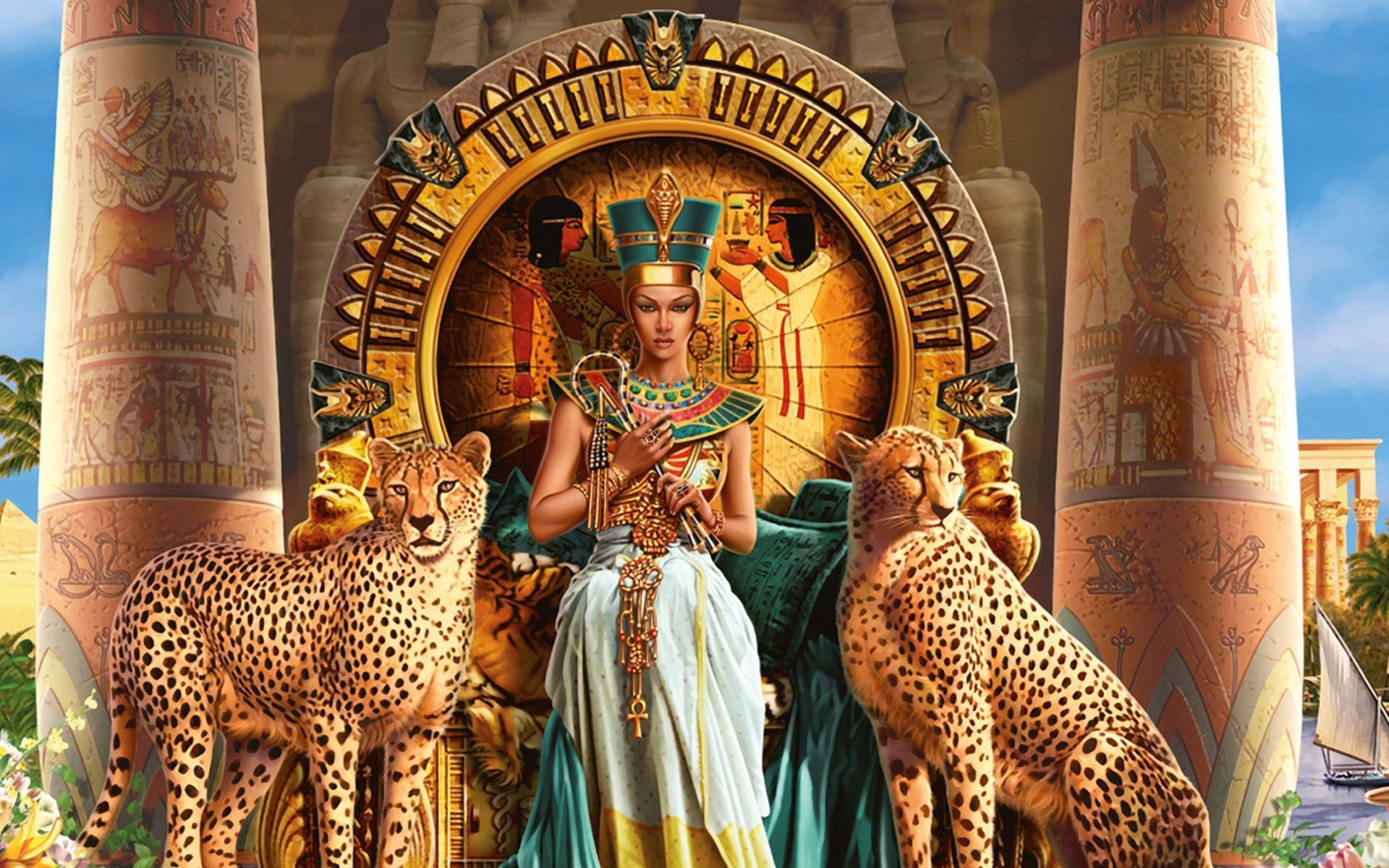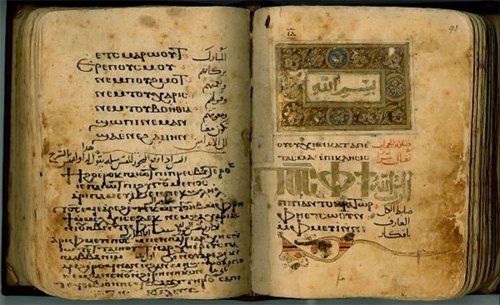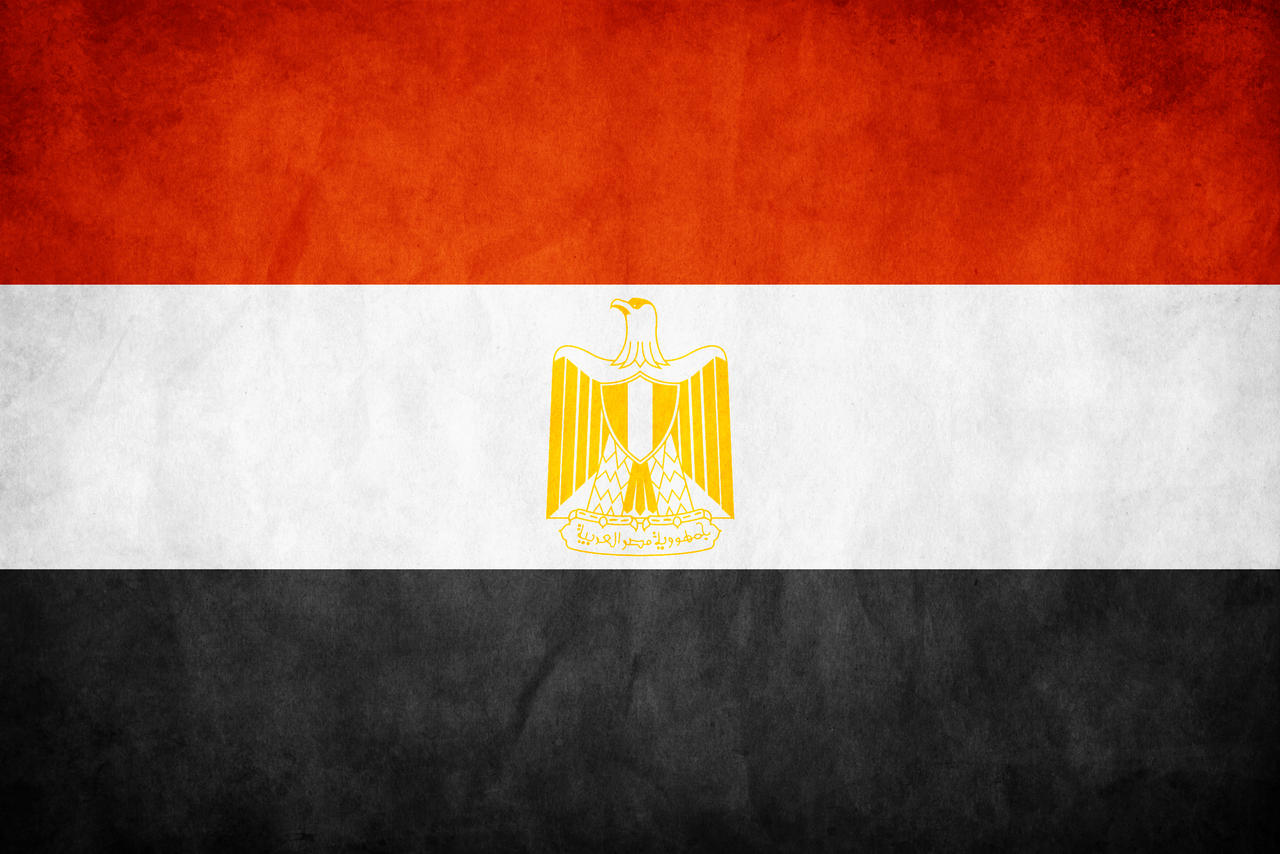1. Polyglot Cleopatra
Cleopatra was the last active pharaoh of Egypt before it became a province of the Roman Empire. Cleopatra was part of the Ptolemaic dynasty which was of Macedonian Greek origin and they spoke Greek as their native language. Cleopatra was told the be the first member of his family who spoke Egyptian. Even though their family had ruled Egypt almost 300 years. Depending on the source, Cleopatra was told to speak fluently something between 6 to 9 languages.
The languages that Cleopatra spoke according to Plutarch:
Greek
Arabic
Egyptian
Mede
Troglodyte
Parthian
Syrian
Ethiopian
 |
| Cleopatra |
2. Egyptian language
The original language of Egypt was Coptic which was spoken until the 17th century before it became replaced by Arabic. It was spoken in Egypt since the 1st century AD. In the 6th century Islam came to Egypt and Arabic as the islamic language. Arabic replaced Coptic then completely as a language of daily life in the 17th century. Arabic had gained a strong position in the whole Northern Africa and Middle East with the spread of Islam.
 |
| Coptic |
3. Saladin's Eagle
Egypt got its current flag in 1984 when the black hawk of Qureish in the middle band of the flag was replaced by the Eagle of Saladin. Saladin was the first sultan of Egypt and Syria in 1174. He founded the Ayyubid dynasty. Saladin defeated the European crusaders of the Kingdom of Jerusalem which was a turning point with the Muslim powers in the region.
 |
| Saladin's eagle |
4. Muhammad Ali Pasha
The man regarded as the founder of modern Egypt. Ironically he wasn't Egyptian. Muhammad Ali Pasha was a commander in the Ottoman army. His parents were Albanian and Albanian was his native language. During his reign Muhammad Ali Pasha instituted dramatic reforms in the military, economic and cultural spheres and established the Khedive dynasty that lasted until the Egyptian revolution in 1952. Muhammad Ali built the ground for the independent Egypt although Egypt didn't get independence from the Ottoman Empire during his lifetime.
Muhammad Ali Pasha's actions
Nationalized all the land of Egypt
Modernized the industries of Egypt
Built a central bureaucracy
Sent promising citizens to study in Europe
Captured Hejaz back from the al-Saud family
Founded Khartoum as an outpost for the military
Had a secret dream of becoming the sultan of the whole Ottoman Empire
5. Suez Canal
In 1869 the Suez Canal was finished, it connected the Red Sea to the Mediterranean and had a length of 193 kilometers. It was a huge step for trade, when ships didn't need to sail around Africa to get to Asia, when they could just cross the Suez Canal from the Mediterranean to Red Sea and to Indian Ocean. The canal was built by a French company and designed by an Austrian engineer named Alois Negrelli.
Suez Canal timeline
1859 La Compagnie Universelle du Canal Maritime de Suez begins the constructions
1869 The canal is finished and opened for use
1875 The British government buys Egypt's shares because Egypt is in financial troubles
1888 The canal is opened for ships of all countries, The British send their military to supervise the canal as Britain declares the Suez Canal as their protectorate
1956 President Nasser nationalizes the Suez Canal which leads to the Suez crisis, France and Britain attack to the canal to secure the international traffic, Egypt responds by sinking 40 ships. Later UN:n troops calm down the situation and the ownership shifts officially to Egypt.
1957 The canal is opened again
1962 Egypt pays compensation for all shareholders because of the nationalization
1967 Six day war closes the canal
1975 After 8 years Egypt opens the canal again
 |
| Suez Canal |
Timeline
6000 BC agriculture begins in the Nile delta area
3150 BC Menes unites Lower and Upper Egypt, first pyramids were built
2600-2100 BC The Old Kingdom flourishes, The Giza pyramids were built in this era
1900-1700 BC The Middle Kingdom flourishes with Luxor as their center
1500-1000 BC The New Kingdom, the most famous pharaohs are from this era and Egypt was a international power at the time
525 BC Egypt was conquered by the Persian Empire until 404 BC
343 BC Egypt once more came under Persian rule
332 BC Alexander the Great conquers Egypt
30 BC Cleopatra commits suicide when caesar Augustus makes Egypt a Roman province
400 After the division of Rome, Egypt remains a part of Byzantium
640 The Arabs spread their language, culture and islam
969 Shiite Fatimids establish the capital of their caliphate in Cairo
1171 Kurdish warlord and sunna moslem Saladin displaces the Fatimid caliphate and proclaims himself a sultan
1250 The Mamluks, a military caste takes control after the fall of the Kurdish Ayyubid dynasty
1517 Egypt becomes a part of the Ottoman Empire, the Mamluks still had power under their rule
1804 Albanian officer Muhammad Ali Pasha, from the Ottoman army, overtook the power and executed 470 Mamluk chiefs
1818 Muhammad Ali Pasha's troops conquer back Hejaz, the area where the sacred cities of Mecca and Medina are
1821 Muhammad Ali Pasha established the Khedive dynasty which lasted until 1952
1869 The Suez canal is finished, which was designed by French engineers
1914 Turkey allies with Germany and so Egypt is declared as a protectorate of United Kingdom
1922 Egypt declares independence from United Kingdom
1952 Egyptian revolution, this ends the era of the Khedive dynasty
1953 Egypt becomes a republic
1954 Gamal Abdel Nasser overtakes the power
1956 Suez crisis after Nasser had nationalized the Suez canal
1958 Egypt, North Yemen and Syria form the United Arab Repuliblic which lasted until 1961
1962 Egypt interfered the civil war of Yemen
1967 Egypt lost Sinai and Gaza for Israel after six days of war, the Suez canal had to be closed for 8 years
1968 The damm of Assuan was built with the help of the Soviet Union
1973 Jom kippur war against Israel
1979 Anwar Sadat backed by the US signed the peace agreement of Camp David, as a result Egypt got Sinai back but was seen as a traitor among the other Arab countries
1981 Islamic extremists murder Sadat, Hosni Mubarak rises in power
1984 Egypt changes its name to Arab Republic of Egypt and places Saladin's golden eagle on the flag
1989 Egypt is accepted back to the Arab League
2011 The Arab Spring spread to Egypt and Mubarak resigned
In summary
Prehistoric Egypt until 3100 BC
Ancient Egypt 3100 - 332 BC
Classical Antiquity 332 BC - 629
Arab Egypt 641-969
Fatimid Egypt 969-1171
Ayyubid Egypt 1171-1250
Mamluk Egypt 1250-1517
Ottoman Egypt 1517-1867
Khedivate of Egypt 1867-1914
Sultanate of Egypt 1914-1922
Kingdom of Egypt 1922-1953
Republic 1953-
1962 Egypt interfered the civil war of Yemen
1967 Egypt lost Sinai and Gaza for Israel after six days of war, the Suez canal had to be closed for 8 years
1968 The damm of Assuan was built with the help of the Soviet Union
1973 Jom kippur war against Israel
1979 Anwar Sadat backed by the US signed the peace agreement of Camp David, as a result Egypt got Sinai back but was seen as a traitor among the other Arab countries
1981 Islamic extremists murder Sadat, Hosni Mubarak rises in power
1984 Egypt changes its name to Arab Republic of Egypt and places Saladin's golden eagle on the flag
1989 Egypt is accepted back to the Arab League
2011 The Arab Spring spread to Egypt and Mubarak resigned
In summary
Prehistoric Egypt until 3100 BC
Ancient Egypt 3100 - 332 BC
Classical Antiquity 332 BC - 629
Arab Egypt 641-969
Fatimid Egypt 969-1171
Ayyubid Egypt 1171-1250
Mamluk Egypt 1250-1517
Ottoman Egypt 1517-1867
Khedivate of Egypt 1867-1914
Sultanate of Egypt 1914-1922
Kingdom of Egypt 1922-1953
Republic 1953-
Sources
https://en.wikipedia.org/wiki/Egypt - Egypt history
https://en.wikipedia.org/wiki/List_of_pharaohs - List of pharaohshttps://en.wikipedia.org/wiki/Egypt - Egypt history
"Maailman liput maat ja historia" by Kimmo Kiljunen
http://www.ancient.eu/Cleopatra_VII/
https://en.wikipedia.org/wiki/Egyptian_language
https://en.wikipedia.org/?title=Saladin
https://en.wikipedia.org/wiki/Muhammad_Ali_of_Egypt
https://en.wikipedia.org/?title=Saladin
https://en.wikipedia.org/wiki/Muhammad_Ali_of_Egypt








No comments:
Post a Comment